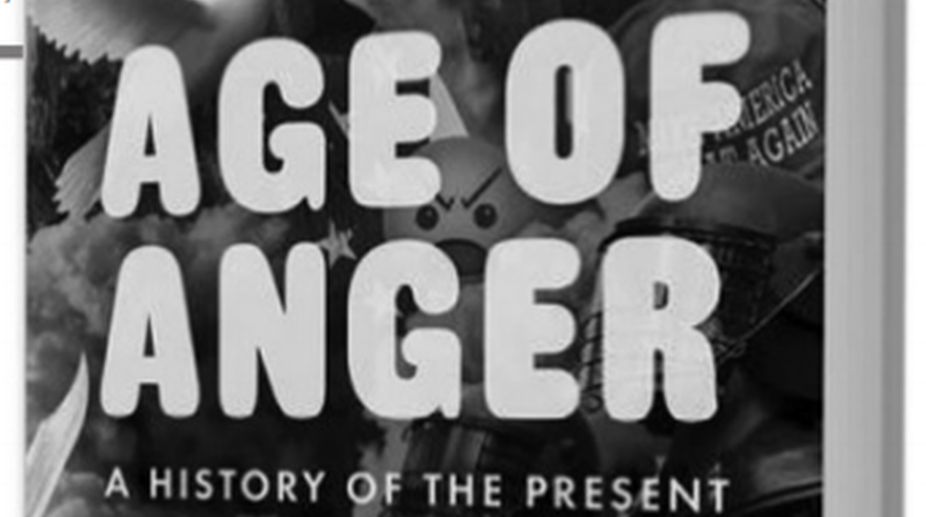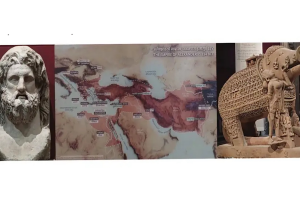Pankaj Mishra is an Indian origin writer based in Britain who is a poster boy for the lunatic liberal fringe. Enjoying the privilege of the pages of some well-established journals, he plays up to this image by attacking from a safe distance and scant understanding those demonized by the self-accredited champions of liberty, whose targets include Modi, Erdogan, Xi Jinping, Duterte and Trump. On the jacket cover, Mishra is lauded as the heir to Edward Said which no discerning person would regard as a compliment.
This latest Mishra offering is a verbose, tendentious, selfindulgent work replete with over-writing. He claims the idea for this book came to me from Nietzsche about the conflict between the serenely elitist Voltaire and the enviously plebian Rousseau. This sets out his stall early. The list of contents, containing the words conjectures, illusions, visions and nihilism, gives forewarning that this is not an easy read, full of inchoate and meandering thoughts. The Preface that follows confirms this; with references to Hindu supremacists, the Islamic State became a magnet for young men and women in Western democracies (sic) and the bewildering and often painful experiences in connection with the earthquakes of Brexit and Trumps election.
The book professes to explore a climate of ideas and cognitive disposition from Rousseau in the 18th century to our age of anger. He speaks of the promised universal civilization being overturned by demagogues of all kinds here listing Erdogan, Modi, Le Pen and Trump, and people foaming at the mouth with loathing and malice. Those whose politics he disagrees with are demagogues and populists; as a superior species of democrat, Mishra deliberately forgets that these persons have been freely elected through the ballot box. The West-dominated world order which he longs for, is giving way to disorder, in other words, the age of anger, and the market-based Western model of democracy has begun to lose its sheen. Those who seek a post-West equitable multi-polar world would entirely disagree and could not concur with Mishras view of the Wests benign traditions. Colonialism was active until the 1960s and neo-colonialism is very much with us today.
Advertisement
With repeated references to Hannah Arendt and de Toqueville, Mishra backpedals to Voltaire, Montesquieu, Rousseau and the philosophes in lengthy and scarcely convincing digressions on the Enlightenment and European history (but without acknowledgement to British and Scottish contributions to the Enlightenment) to show how far the world has fallen from his expectations, with sideswipes at Rushdie and (of course) Huntington. Wagner and Nietzsche, fascists and anarchists and appeals for gender equality play their part. Mishras pages are replete with as many references, repetitions and quotations as possible as evidence of his intellectuality.
He is a trenchant and wholly biased opponent of Narendra Modi ~ He and his fellow strongman, supervising bloody purges of economically enervated and unproductive people ~ and accuses Indians of chronic anti-Westernism, a West of which he presumably sees himself as a champion, though he refers two pages earlier to an Indian craze for foreign consumer goods and approval from the West. Defecation in the open and caste of course need to be mentioned. Savarkar is linked to fascists, communists and Zionists ultra-nationalists and cultural supremacists.
Mishra believes that admirers of Edward Snowden and the National Security Agency of the USA and Guantanamo are left-leaning, and cannot conceal his snobbery, describing DAnnunzio as a short-statured man of humble provincial origins, a parvenu who tried to pass himself off as an aristocrat. Mishra belongs to the same ignorant army of ideologues that he despises. He has delivered another turkey, and the astonishing thing is that this work has been reprinted in India. The author offers no nostrum for the malaise he professes to discern, but this comes as no surprise, since it is easier to demolish than to build. Mishra is fundamentally in error: there is no destruction of faith in the future; quite the contrary. Modi, Duterte and Trump were elected not because of anger but because of hope. It was not the hatred of Sunni supremacists that killed innocents but faith. Mishra perhaps has some talent for biography of notables of the past and none for world affairs of today, and he should confine himself to the former. But with the liberal establishment in the West ~ more intolerant than any other in the world ~ cheering him on, neither redemption for him nor relief for his future readers, is at hand.
The reviewer is Indias former Foreign Secretary.
Advertisement











